9 Vitamin B12 Rich Cereals You Should Include In Your Diet
Know how to give more of this essential vitamin to your body as a healthy breakfast.
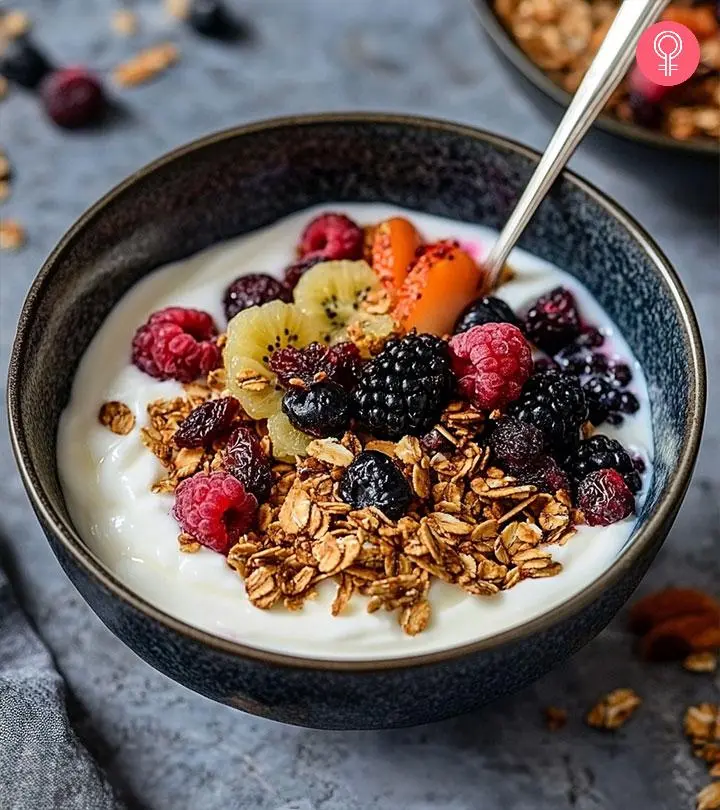
Image: Midjourney/ StyleCraze Design Team
The human body needs 5 kinds of nutrients to function normally. These are mostly divided into five categories, such as fat, carbohydrates, proteins, essential vitamins and minerals, and roughage or fiber. Different nutrients offer different health benefits to the human body that help it function properly. And each of them needs to be added to your daily diet. Ensure you get these nutrients, in the required quantity, through the food you eat to achieve good health. Vitamin B12 is an important nutrient that performs numerous functions in the body, such as DNA synthesis and neurological function (1). Understanding its role in your diet is important for preventing deficiencies that could lead to significant health problems. This key nutrient can be sourced from various foods, including animal liver (beef liver) and nutritional yeast or yeast extract. This article will help you understand more about this vitamin, from its uses to the health benefits of vitamin B12. We’ll also take a look at the day-to-day food cereals, one of the important WIC-eligible foods consumed by many, that are high in this essential nutrient.
In This Article
What Is Vitamin B12 ?
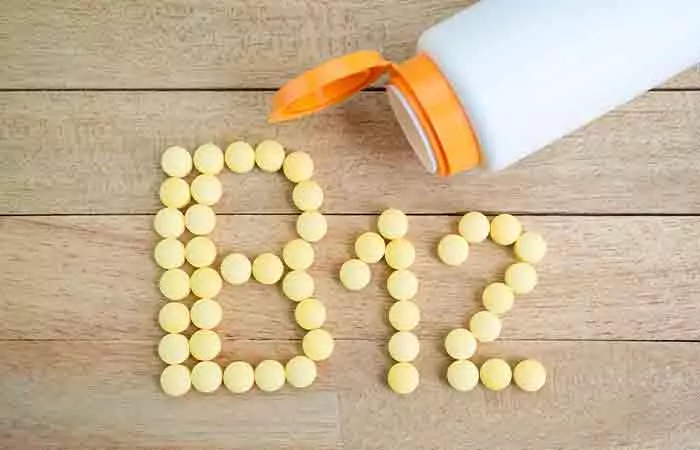
Vitamin B12 is one of the essential vitamins for human health and is needed by the body for its daily processes and work. This essential nutrient is water soluble and is also known as cobalamin.
Eva De Angelis, a Dietitian Nutritionist, says, “Vitamin B12 is a vitamin that can only be found naturally in animal products. Fish, shellfish, meat, poultry, organ meat, eggs, and dairy products are examples of these foods. Additionally, there are many plant foods fortified with vitamin B12, like breakfast cereals, plant-based milk, and nutritional yeast. Beef liver contains the most vitamin B12 of these foods.”
 Quick Tip
Quick TipKey Takeaways
- Vitamin B12 consumption is linked to improved neurological function.
- Seafood, animal meat, and soy are some great sources of vitamin B12.
- You can derive vitamin B12 from fortified cereals as an alternative to animal products.
- Malt-O-Meal, Kellogg’s, General Mills, and Kashi Heart provide a healthy range of vitamin B12-rich cereals.
Vitamin B12 And Its Role In Human Body
The human body is a complex system of many organs and systems, which work in tandem. Each cell in the body works to make it a highly effective individual unit. Vitamin B12 plays an important role in:
- Cellular level metabolism to help cell division (1).
- Plays an important and major role in the synthesis and regulation of DNA in the human body (1), (2).
- Plays a major and essential role in the synthesis of fatty acids in the body (3).
- Important role in blood cell formation in the body (2).
- Required for normal work and functioning of the nervous system and the human brain (2).
- Normal functioning and maintenance of the nervous system (2).
Apart from these, the benefits of vitamin B12 are quite extensive. It may also help boost your energy levels, support brain function, and promote healthy skin and hair.
Infographic: Top Cereals That Are Loaded With Vitamin B12

Illustration: StyleCraze Design Team
 Trivia
TriviaSymptoms And Potential Health Risks Of Vitamin B12 Deficiency
There is a significant association between vitamin B12 and your overall health. Not including foods rich in this essential nutrient or taking vitamin B12 supplements may negatively impact your health and increase the risk of vitamin B12 deficiency. Some symptoms of vitamin B12 deficiency include:
- Tiredness
- Lightheadedness
- Pale skin
- Heart palpitations
- Diarrhea
- Vision issues
It may also lead to the following potential health risks of B12 deficiency (5):
- Impairment of cognitive function that could lead to cognitive decline
- Nerve damage
- Muscle weakness and mental issues like depression or memory loss.
- Anemia
- Heart failure
- Gastric cancer
- Type 1 diabetes
- Rheumatoid arthritisi A long-term autoimmune condition that results in joint discomfort, stiffness, edema, and inflammation that frequently causes damage to joints.
- Myasthenia gravisi A chronic autoimmune neuromuscular disease that impairs nerve-muscle communication, resulting in skeletal muscle weakening.
- Hashimoto diseasei A chronic autoimmune disorder in which the immune system attacks the thyroid gland, leading to hypothyroidism.
Further, social and economic factors were found to contribute to health inequalities and the deficiency of vitamins, as seen in the study conducted by NHANES. This observational study showed that low socioeconomic status people, women, and non-Hispanic Blacks were most likely to be deficient in vitamin B12.

 Trivia
Trivia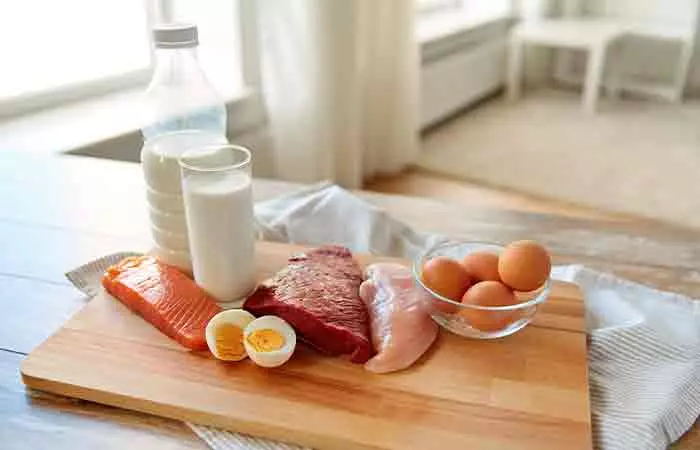
Vitamin B12 is rarely found in nature in its true form, where it does exist. It is due to the contamination of the natural occurring vitamins by bacteria. It is found mostly in animal products like meat, fatty fish like salmon, wild-caught salmon, tuna, beef liver, eggs, dairy products, etc. These foods can be especially beneficial for individuals with health conditions that impact B12 absorption. They are also a great source of protein and must be added to your daily diet to combat a vitamin B12 deficiency. However, if you prefer a vegetarian diet like the majority of people in India do, or a plant-based diet, you would need to include diverse food sources of vitamin B12-rich foods like breakfast cereals, plant-based milk, and nutritional yeast in your daily diet. This will help you meet the daily requirement of vitamin B12 intake and promote overall health. In some cases, supplementation of vitamin B12 is recommended to reach the suggested daily dose, which is 2.4 µg of vitamin B12 (for adults) (2). However, issues with stomach acid can hinder the absorption of vitamin B12. Hence any acid-related issues should be addressed before the dietary intake of vitamin B12 to maintain the optimal levels of the nutrient.
- Adequate vitamin B12 is naturally present in soy milk and related products (2) .
- Vitamin B12 is also found in nutrient-dense animal sources of foods like meat and other non-veg foods. These food sources should be added to your daily food intake to ensure that vital levels of vitamin B12 are supplied to the body (2).
- Many of the dietary sources of Vitamin B12 are seafood, especially shellfish, mackerel fish, sardines, tuna fish, salmon fish, cod, shrimp, scallops, crab, clams, and red meat. These fish can be added to your diet to meet the required levels of vitamin B12 needed for the body to function properly. Salmon and tuna contain 2.6 and 2.5 mcg of vitamin B12 (2). Fish consumption also promotes overall health as they are rich in omega-3 fatty acids.
- One should also consume B12-rich food like tofu or soy products to meet the required daily dose of vitamin B12 (2).
- Skimmed milk (low-fat milk) is another rich source of vitamin B12, along with most varieties of cheese, like feta cheese, cottage cheese, Swiss cheese, and eggs. In short, all milk products are excellent sources of vitamin B12. They provide your body with the required concentration of Vitamin B12 (2). It is also found in sufficient quantities in cow’s milk and mushrooms as well and daily intake of these in moderation promotes vitamin B12 levels in the body.
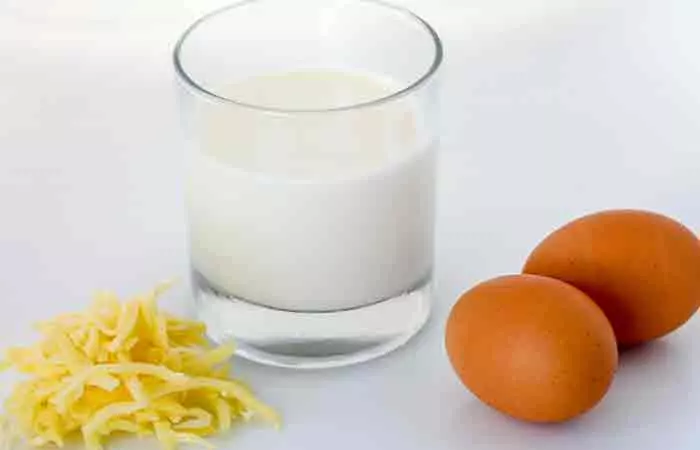
- All morning breakfast cereals are rich in Vitamin B12. Consuming them on a regular basis may help you meet the required vitamin B12 level to some extent. You can also add muesli of any brand to your daily breakfast as it is a good source of vitamin B12. Cereals with all bran can also help you meet the daily vitamin B12 requirement (2).
Cereals High In Vitamin B12

Animal foods like milk and meat are high in vitamin B12. In addition to them, you can add breakfast cereals. The following breakfast cereals have a high amount of Vitamin B12 and they come in convenient food packages, so you can store them for a few weeks. They are a perfect addition to your daily diet to meet the required vitamin B12 intake. These numbers are per serving of 100 g of the cereal.
- Malt-O-Meal High Fiber Bran Flakes: Contains 8.2 mcg of Vit B12.
- Kellogg’s Corn Flakes: contains 2.7 mcg of Vit B12.
- General Mills, Total Corn Flakes: Contains 6 mcg of Vit B12.
- Kellogg’s All-Bran With Extra Fiber: Contains 24 mcg of Vit B12.
- General Mills Multi Grain Cheerios: Contains 21 mcg of Vit B12.
- Kelloggs Complete Oat Bran Flakes: Contains 20 mcg of Vit B12.
- Kashi Heart to Heart Honey Toasted Oats: Contains 18 mcg of Vit B12.
- Kashi Heart to Heart Instant Oatmeal, Apple Cinnamon, Dry: Contains 11 mcg of Vit B12.
- Kellogg’s Low Fat Granola without Raisins: Contains 12 mcg of Vit B12.
In addition to these cereals, you may opt for B12-fortified nutritional yeast, plant-based milk, and meat substitutes to boost your intake. AKL, a vegan blogger, discusses the sources of vitamin B12 ideal for vegans. She notes, “I really struggled at first with where I got B12 from as the most obvious source for non vegans are eggs, meat and cheese. There are very few obvious sources that are vegan without purposely being made for vegans (i)”. She gets her vitamin B12 content from fortified cheese, yogurt, milks, and cereals and marmite.
These vitamin B12-rich cereals may help maximize your daily intake and support overall health. Scroll down to learn more.
How To Incorporate Cereals Into Your Diet?
- Mix cereals, such as Kellogg’s Corn Flakes (2.7 mcg) with Kellogg’s Complete Oat Bran Flakes (20 mcg), to balance taste and nutrition.
- Blend 18 mcg of Kashi Heart and Heart Honey Toasted Oats and add the bits to yogurt for more nutrition and a nice crunch.
- Keep 12 mcg of Kellogg’s Low Fat Granola in a snack pack for a quick energy boost.
- Add banana, almonds, and fortified milk to a smoothie, then blend in 8.2 mcg of Malt-O-Meal High Fiber Bran Flakes.
- For a crunchy garnish, mix General Mills Total Corn Flakes (6 mcg) into a protein smoothie.
Vitamin B12 is not freely occurring in nature like many other vitamins, so you have to add a better food variety to your balanced diet to get the required amount of vitamin B12 into the body. This ensures the proper function of bodily systems. In some cases where the plasma vitamin B12 concentration is low, you can consider alternative sources of this nutrient. The supplementation of vitamin B12 along with vitamin B6 may help you reach the recommended nutrient dosage and aid its absorption in the body. Vitamin B12 supplements and their dosage are generally prescribed by doctors. They come in various forms, such as injections, syrups, sublingual tablets, and nasal sprays. You may choose one that suits your lifestyle.
Discover the best foods that can be included in your diet that are rich in vitamin B12. Check out this video to learn about the top sources of this essential vitamin and how to incorporate them into your diet.
However, if you suffer from any medical condition due to a lack of Vitamin B12, feel free to reach out to your doctor for health and treatment. They might recommend certain dietary supplements and food based on your daily diet and lifestyle to meet the required vitamin B12 intake.
One of the important B complex vitamins, vitamin B12 aids in the functioning of your body. It plays an important role in the formation of new cells including blood cells (white and red blood cells), fatty acids, and DNA. In addition, it also helps maintain a healthy homocysteine level. Vitamin B12 is crucial in maintaining and functioning the nervous system and the brain. It must therefore be consumed as a part of a healthy daily diet along with protein, carbohydrates, and fatty acids. Some cereals, commonly added to healthy diets, that are high in vitamin B12 include Malt-O-Meal High Fiber Bran Flakes, Kellogg’s Corn Flakes, General Mills Multi-Grain Cheerios, among others. You can also add them to your breakfast plan to meet the recommended daily vitamin B12 intake. Consuming vitamin B12 and folic acid aids red blood cell production. Hence, you can also include foods rich in folic acid or folic acid supplements in your diet. Too much or too little of this vitamin can cause complications like elevated plasma vitamin B12 levels, headaches, or nausea. So it’s important to get the right amounts. If you have a vitamin B12 deficiency-related medical condition that lowers plasma vitamin B12 level, speak with a healthcare provider.
Frequently Asked Questions
How much B12 Do I need a day?
Eva De Angelis, Dietitian Nutritionist, says, “The daily value for each micronutrient varies depending on age, gender, and stage of life. The DV (daily value) for vitamin B12 is 2.4 mcg for adults and children aged 4 and up. Yet, the DV for pregnant women and those in the lactation stage is 2.6 and 2.8 mcg, respectively.”
Which vegetarian foods are high in B12?
Eva De Angelis, Dietitian Nutritionist, says, “Vegetarian foods containing at least 20% of the daily value of vitamin B12 are considered a source of this vitamin. As a result, it’s critical to always check the nutrition label of processed plant foods, such as breakfast cereals, plant-based milk or yogurt, and crackers, to see if they’re high in vitamin B12. Depending on the brand, nutritional yeast can contain between 300% and 1000% of vitamin B12 DV.” In addition to yeast, one can also try other foods like plant-based milk.
Does beetroot have B12?
“Yes, beetroot does have B12. The vitamin is found in the dark green parts of the plant. While the root is typically eaten, it’s important to eat the leaves as well to get the most benefit from the plant”, says, Isabella Bazzaro, Registered Dietitian.
Is B12 present in bananas?
Isabella Bazzaro, Registered Dietitian, says, “Vitamin B12 is not present in bananas. However, B12 can be found in foods that are fortified with it, such as breakfast cereals and some plant milk.
Does almond milk have vitamin B12?
In its natural form, almond milk is low in vitamin B12. However, the process of fortification makes almond milk rich in this vitamin. This fortified food is also ideal for daily intake.
Does oat milk have vitamin B12?
Plant-based milk, like oat milk, is low in vitamin B12. The process of fortification makes it rich in vitamin B12 and makes it a good vegan source of this vitamin. Hence it’s a good choice for people on a plant-based diet (vegan diet).
Do almonds have B12?
No, almonds do not contain vitamin B12.
Illustration: Vitamin B12 Rich Cereals You Should Include In Your Diet

Image: Stable Diffusion/StyleCraze Design Team
Personal Experience: Source
StyleCraze's articles are interwoven with authentic personal narratives that provide depth and resonance to our content. Below are the sources of the personal accounts referenced in this article.
i. How I get Vitamin B12 as a veganhttps://aklcrueltyfreelife.wordpress.com/2018/08/19/how-i-get-vitamin-b12-as-a-vegan/
References
Articles on StyleCraze are backed by verified information from peer-reviewed and academic research papers, reputed organizations, research institutions, and medical associations to ensure accuracy and relevance. Read our editorial policy to learn more.
- Vitamin B12 Deficiency
https://idp.nature.com/transit?redirect_uri=https%3A%2F%2Fwww.nature.com%2Farticles%2Fnrdp201740&code=318ea08a-ddb7-474a-a2b5-6d50b87eefe7 - Vitamin B12
https://ods.od.nih.gov/factsheets/VitaminB12-HealthProfessional/ - The Effect of Vitamin B, Deprivation on the Enzymes of Fatty Acid Synthesis
https://www.jbc.org/article/S0021-9258(19)43324-3/pdf - Maternal Vitamin B12 Status and Risk of Neural Tube Defects in a Population With High Neural Tube Defect Prevalence and No Folic Acid Fortification
https://www.ncbi.nlm.nih.gov/pmc/articles/PMC4161975/
Read full bio of Dr Archana Batra
- Isabella Bazzaro, RD, is a registered dietitian with 3 years of experience. She is passionate about helping people live long and healthy life by making smart food choices. After graduating from the University of Miami with a degree in nutrition science, Isabella began to offer her services to hundreds of South Florida clients.
 Isabella Bazzaro, RD, is a registered dietitian with 3 years of experience. She is passionate about helping people live long and healthy life by making smart food choices. After graduating from the University of Miami with a degree in nutrition science, Isabella began to offer her services to hundreds of South Florida clients.
Isabella Bazzaro, RD, is a registered dietitian with 3 years of experience. She is passionate about helping people live long and healthy life by making smart food choices. After graduating from the University of Miami with a degree in nutrition science, Isabella began to offer her services to hundreds of South Florida clients. - Eva De Angelis is a Dietitian Nutrionist from Argentina. She specializes in food and nutrition education, and healthy cooking. She has a Bachelor’s degree in Human Nutrition and Dietetics from ISalud University, a postgraduate certificate in Nutrition, Gastronomy, and Health, a culinary diploma, and an intermediate-level technical degree in Food Science.
 Eva De Angelis is a Dietitian Nutrionist from Argentina. She specializes in food and nutrition education, and healthy cooking. She has a Bachelor’s degree in Human Nutrition and Dietetics from ISalud University, a postgraduate certificate in Nutrition, Gastronomy, and Health, a culinary diploma, and an intermediate-level technical degree in Food Science.
Eva De Angelis is a Dietitian Nutrionist from Argentina. She specializes in food and nutrition education, and healthy cooking. She has a Bachelor’s degree in Human Nutrition and Dietetics from ISalud University, a postgraduate certificate in Nutrition, Gastronomy, and Health, a culinary diploma, and an intermediate-level technical degree in Food Science.
Read full bio of Tanya Choudhary
Read full bio of Ravi Teja Tadimalla
Read full bio of Moksha Gandhi







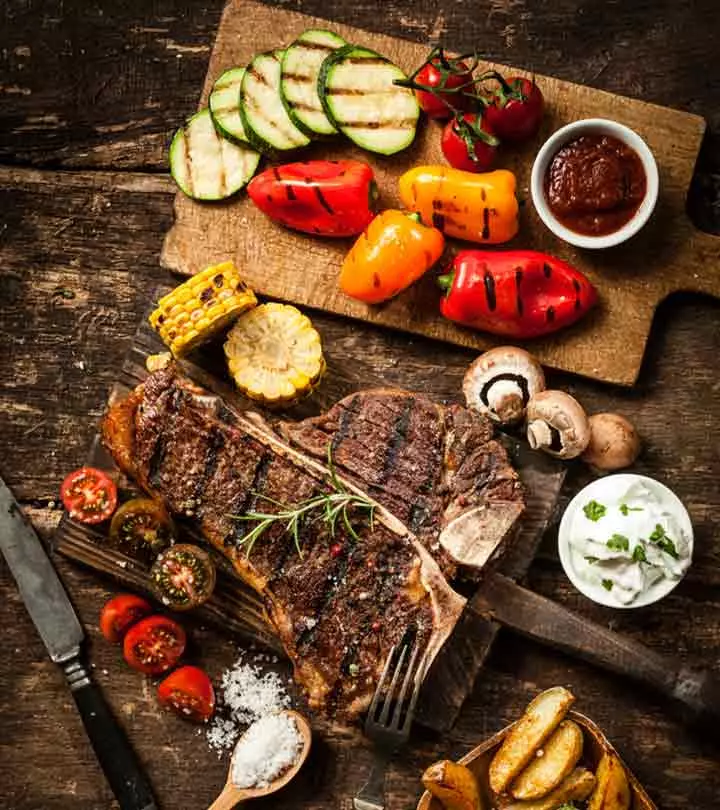
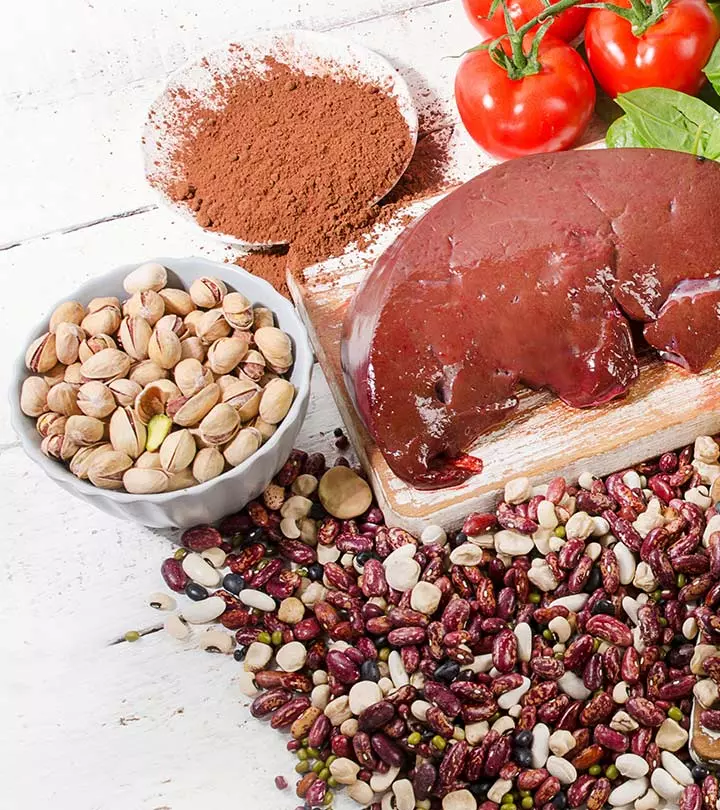
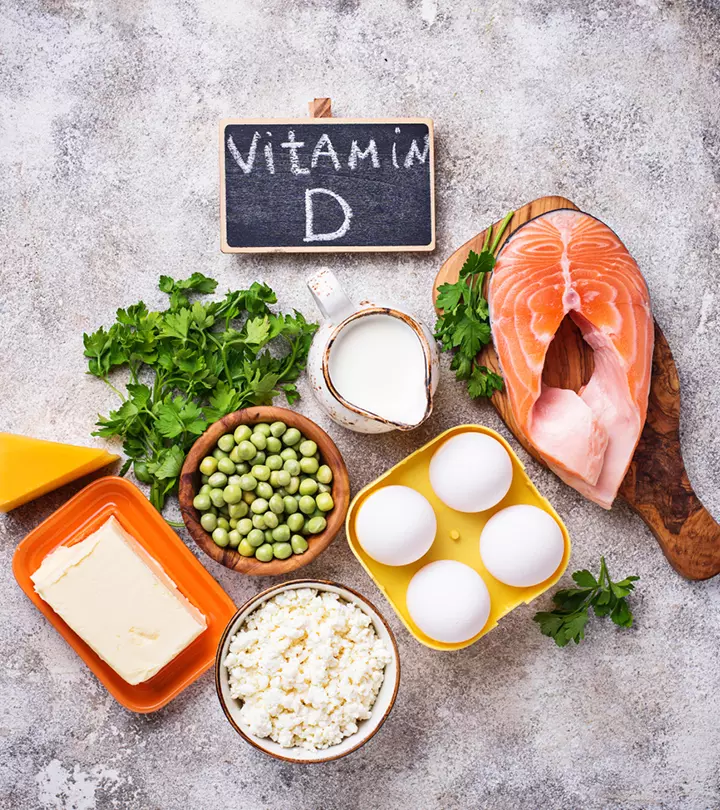
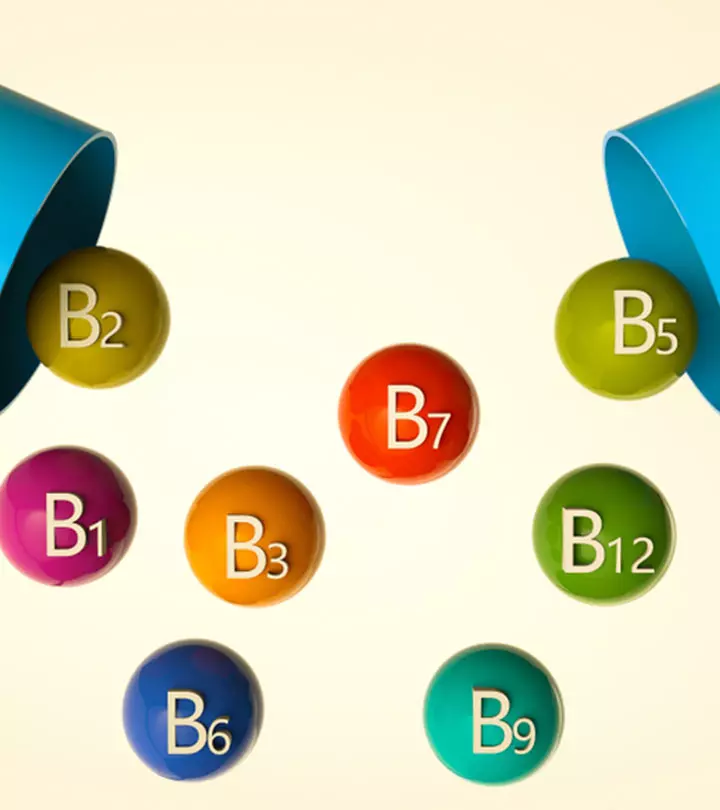
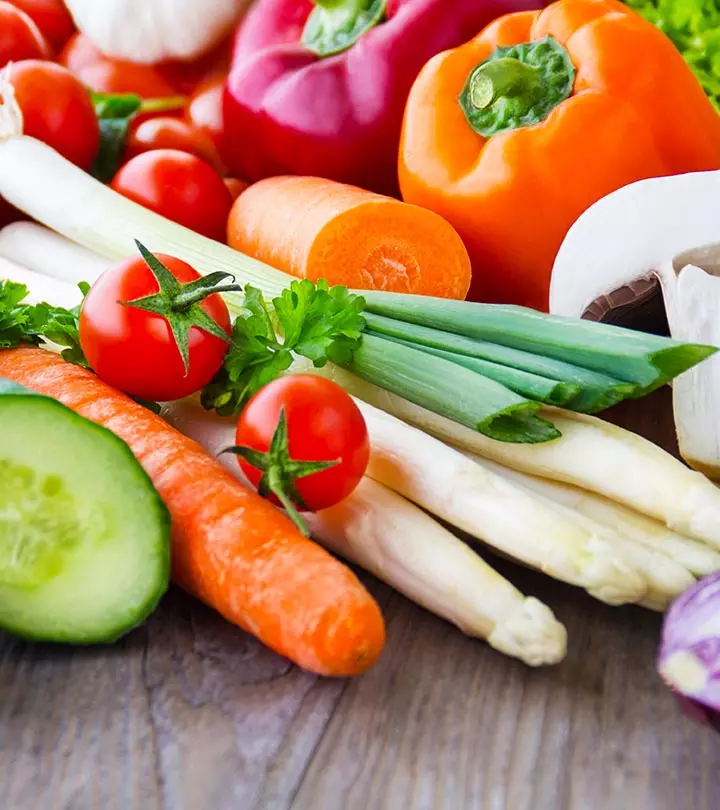
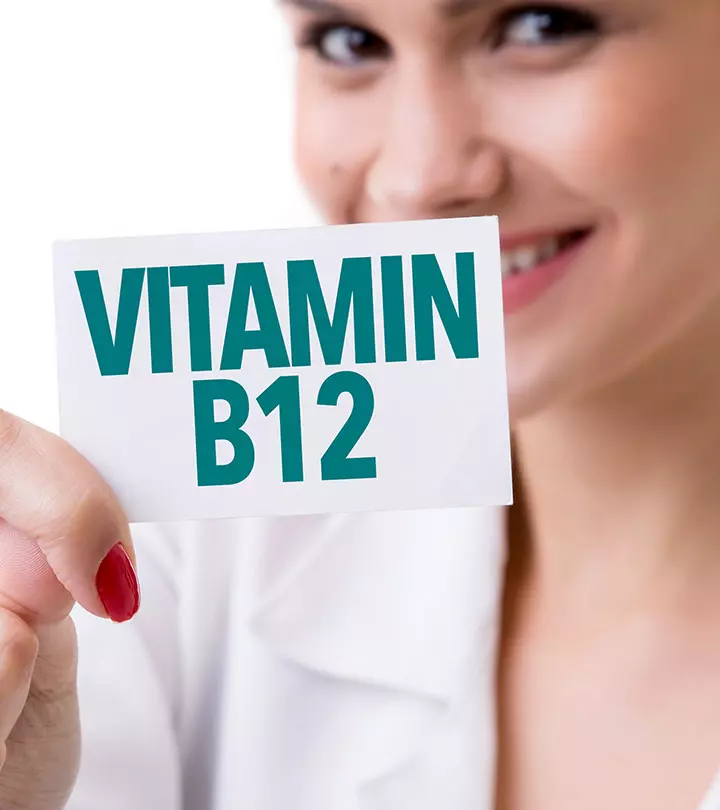
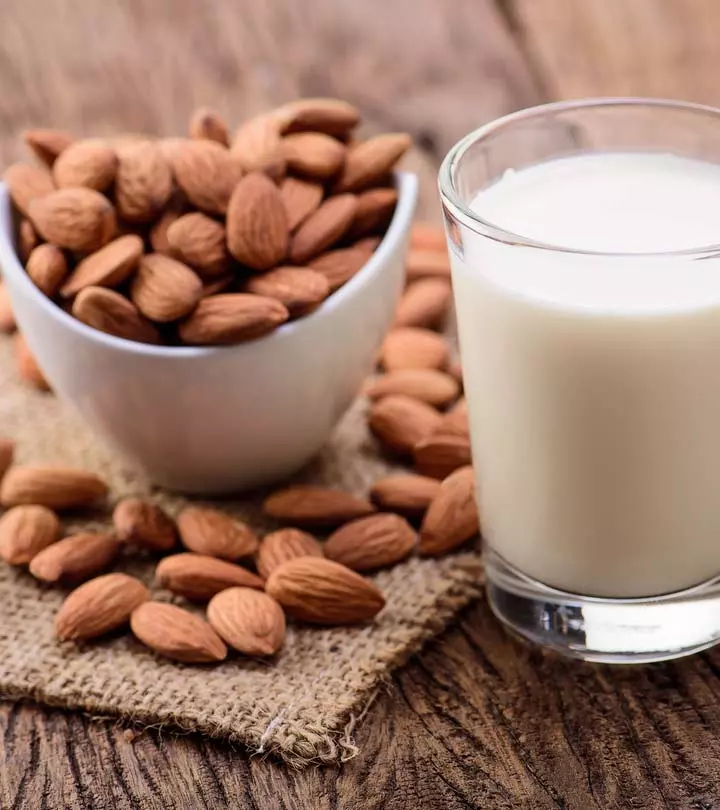
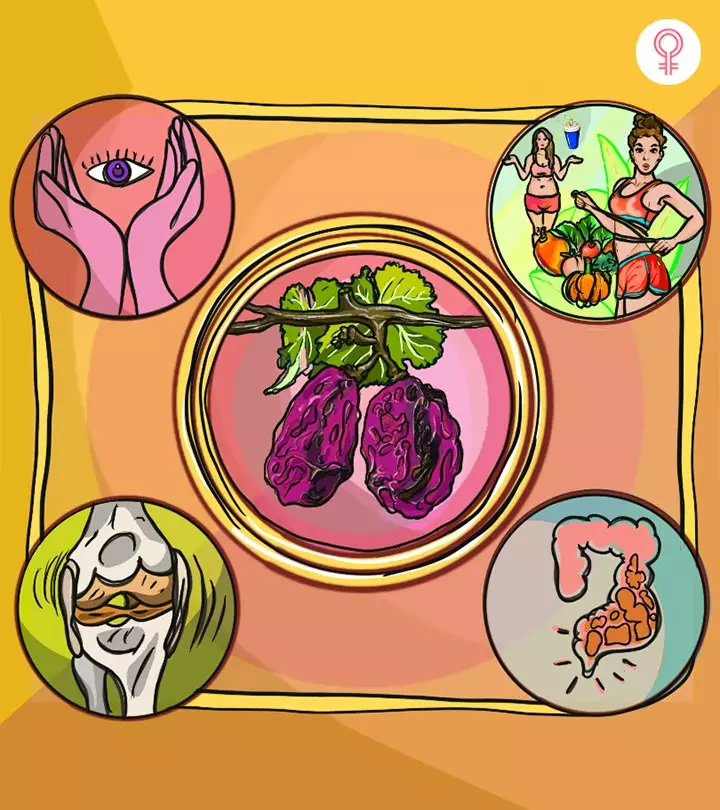
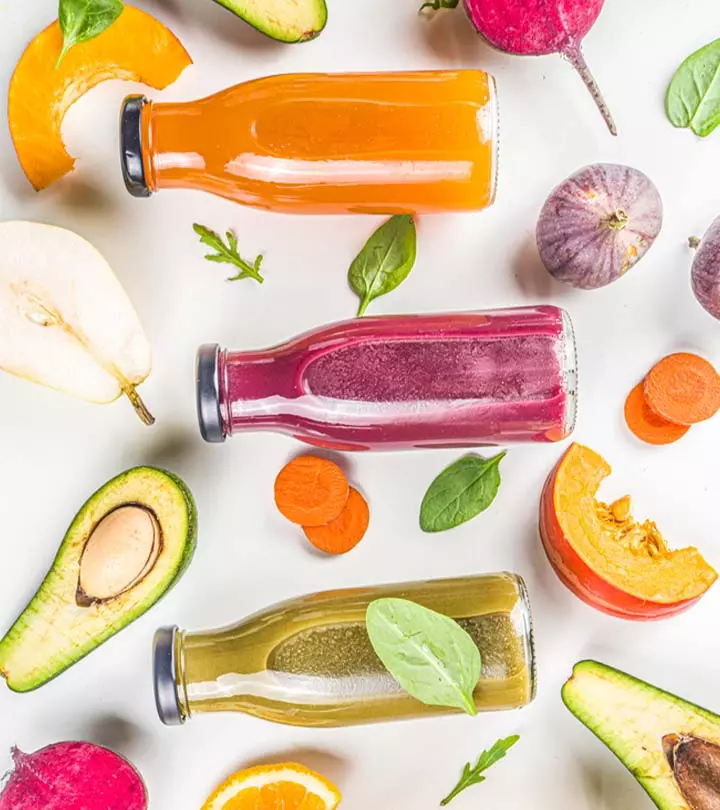
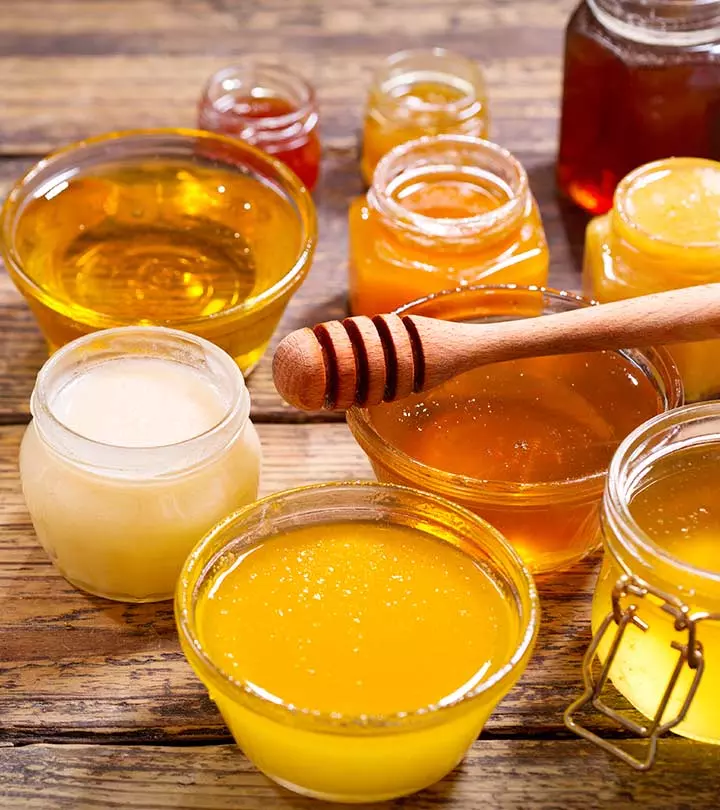
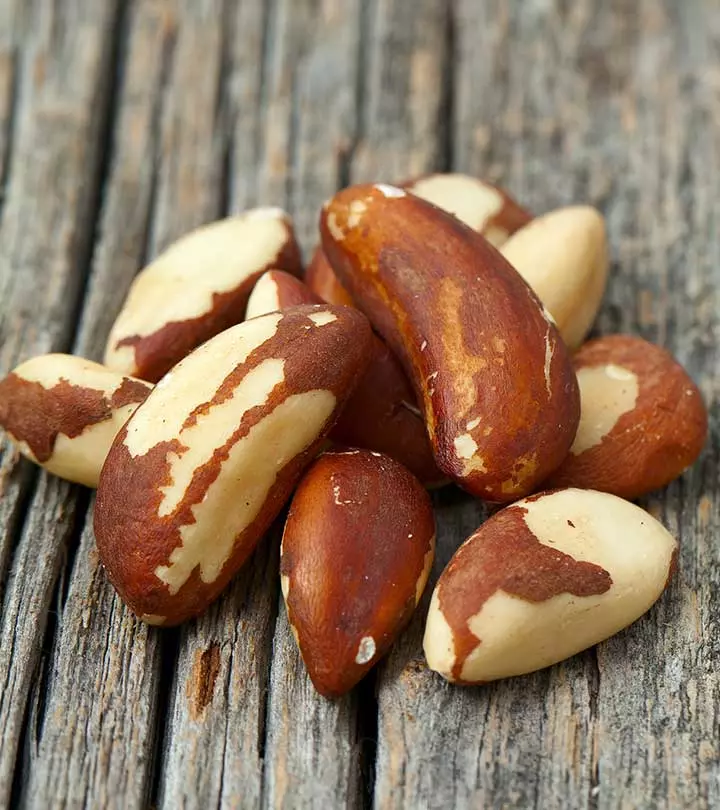
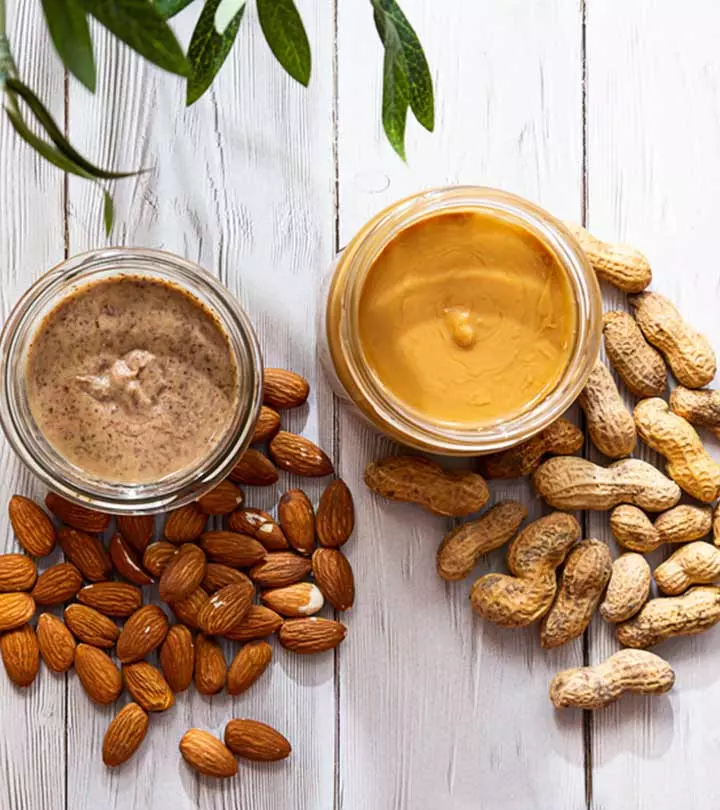
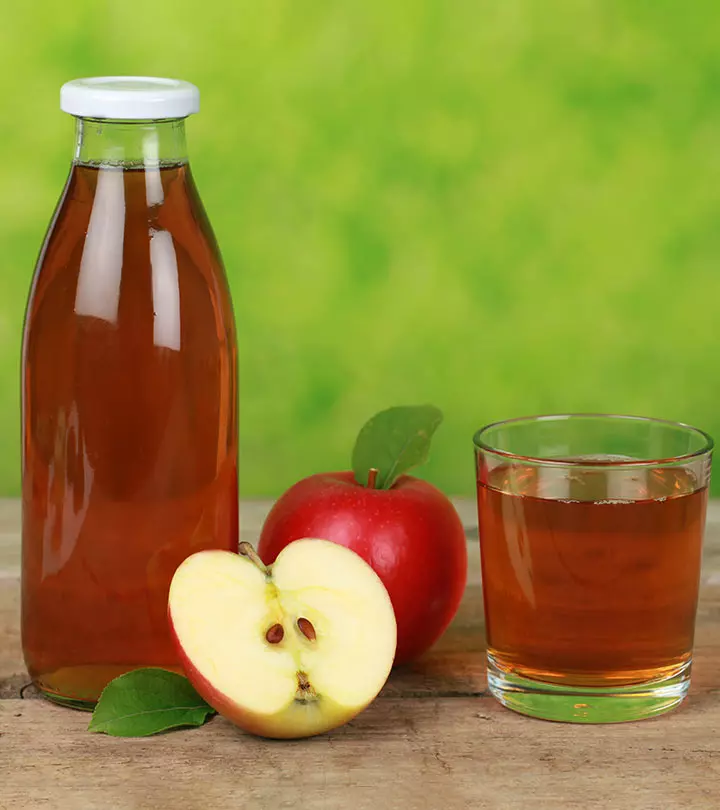
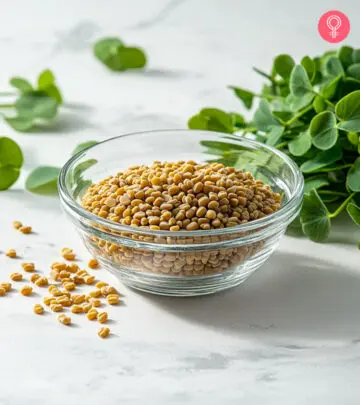

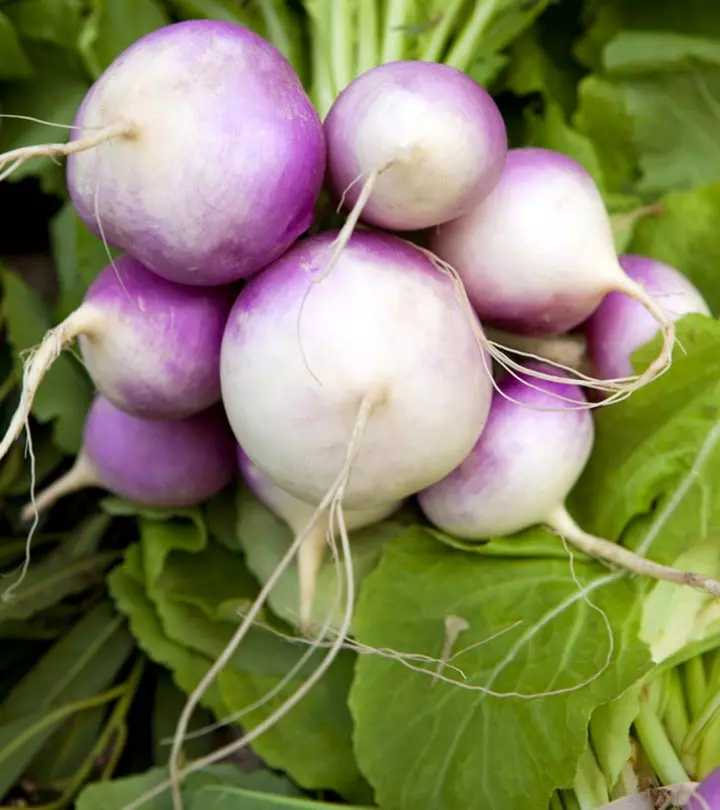
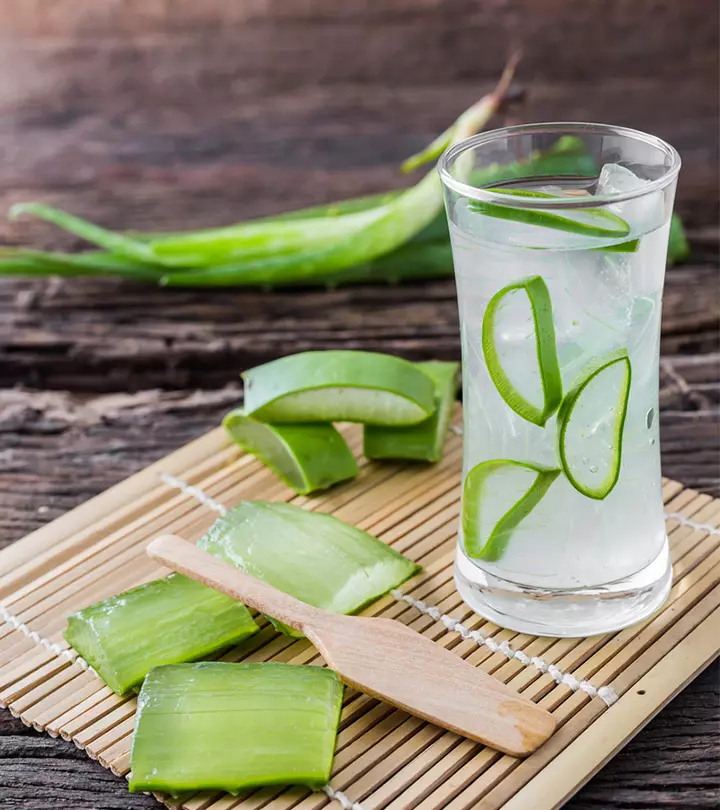
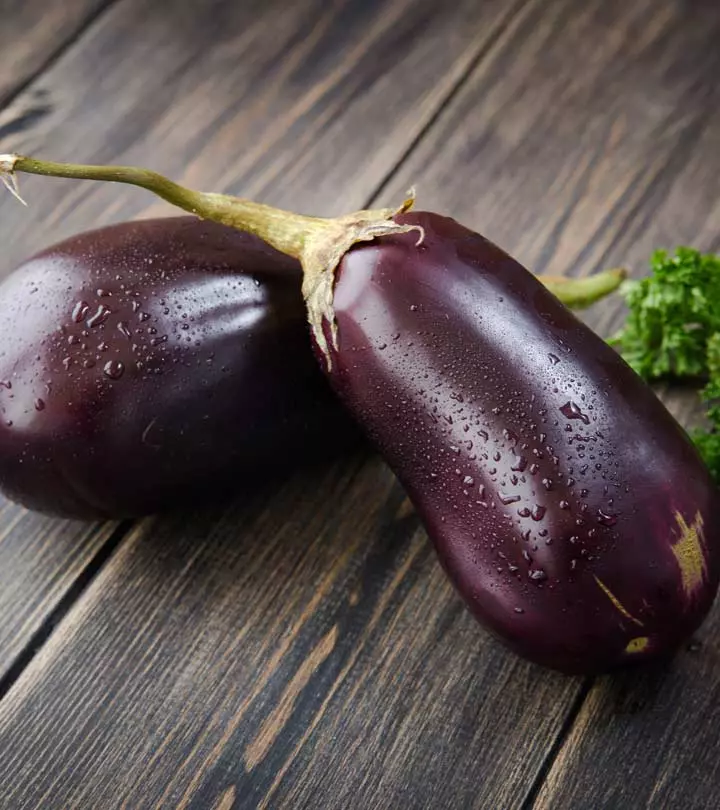
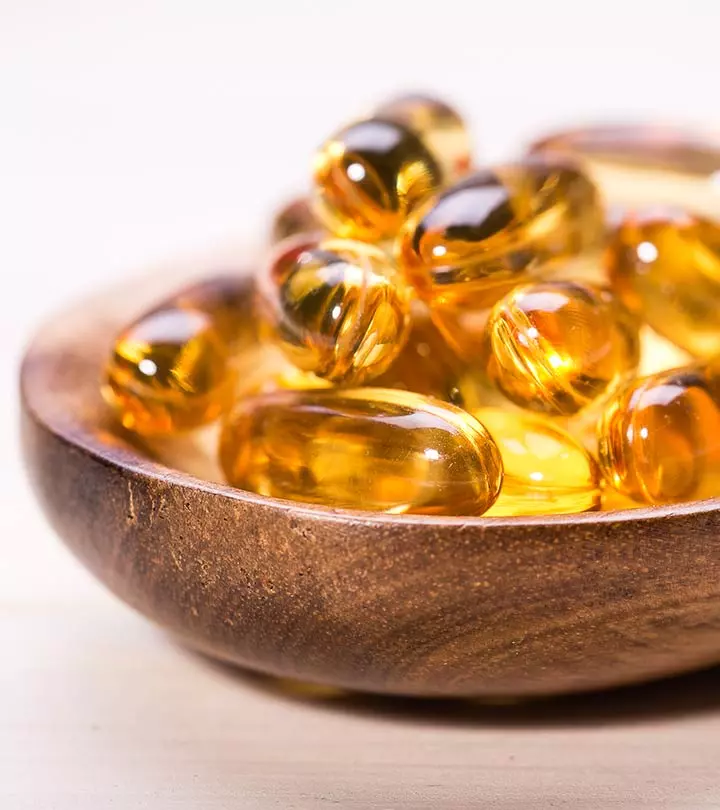

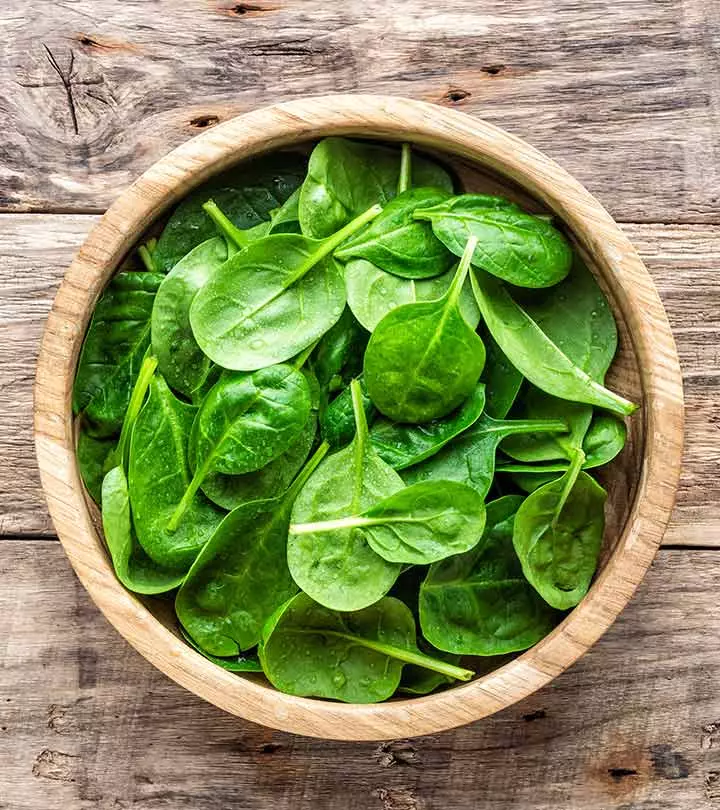
Community Experiences
Join the conversation and become a part of our empowering community! Share your stories, experiences, and insights to connect with other beauty, lifestyle, and health enthusiasts.